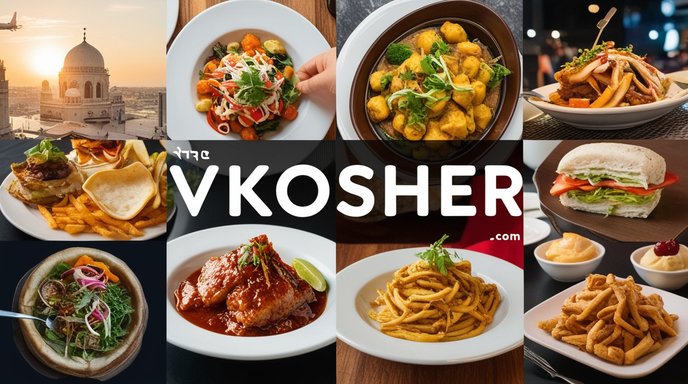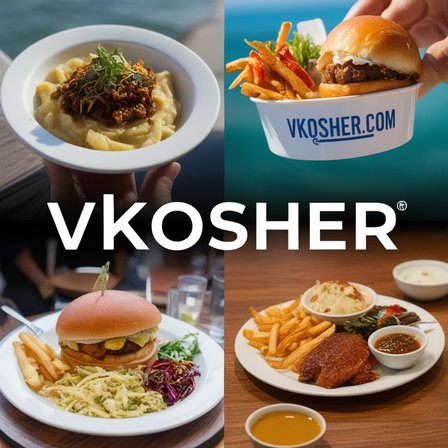The Essentials of Kosher Butter: A Comprehensive Guide
Kosher butter, a staple in many households, is more than just a culinary ingredient; it embodies a tradition and a set of practices that align with Jewish dietary laws. This guide delves into the nuances of kosher butter, exploring its significance, production methods, and culinary applications, all while highlighting its role in both religious observance and everyday life.
Understanding Kosher Butter
At its core, kosher butter adheres to dietary laws outlined in the Torah, particularly the prohibition against mixing meat and dairy. Kosher laws are rooted in a profound respect for the distinction between these two food categories. Butter that is labeled kosher is produced in compliance with these laws, ensuring that it meets the stringent requirements set forth by Jewish dietary practices.
Kosher butter must come from cows that are slaughtered according to kosher guidelines, and the butter must be processed using equipment that is dedicated to dairy products alone. This separation is crucial in maintaining the kosher status of the butter and preventing cross-contamination with non-kosher or meat products.
The Production Process
The production of kosher butter involves several key steps, each of which is subject to strict supervision. First and foremost, the milk used in kosher butter must come from a kosher animal. In addition, the milk must be pasteurized, a process that involves heating the milk to a specific temperature to eliminate harmful bacteria and ensure its safety for consumption.
Once pasteurized, the milk is churned to separate the butterfat from the buttermilk. This churning process is critical in determining the texture and quality of the butter. The resulting butterfat is then washed and salted, with the salt serving both as a preservative and as a means of enhancing the flavor.
During production, the equipment used must be thoroughly cleaned and inspected to ensure that it has not been used for any non-kosher products. This practice helps maintain the integrity of the kosher certification and ensures that the butter remains compliant with dietary laws.
The Role of Kosher Certification
Kosher certification is a fundamental aspect of kosher butter. This certification is granted by rabbinical authorities who oversee the production process to ensure that all requirements are met. The certification process involves rigorous inspections and adherence to specific guidelines that govern everything from ingredient sourcing to equipment usage.
For consumers, kosher certification provides assurance that the butter meets all the necessary standards and is suitable for those observing kosher dietary laws. The certification is typically indicated by a symbol, such as a "U" with an "O" or a "K" with a "Star," which signifies that the product has been verified by a reputable kosher certifying agency.
Culinary Uses of Kosher Butter
Kosher butter is not just a dietary necessity; it is also a versatile ingredient in the kitchen. Its rich, creamy texture and flavor make it an ideal choice for baking, cooking, and spreading. Whether you are preparing a batch of cookies, sautéing vegetables, or simply spreading it on a slice of bread, kosher butter enhances the taste and texture of a wide range of dishes.
In baking, kosher butter contributes to the tender, flaky texture of pastries and cookies. Its fat content is crucial in creating a desirable crumb structure, and its flavor adds depth to baked goods. Additionally, kosher butter can be used in savory dishes, where it imparts a rich, buttery flavor to sauces, soups, and casseroles.
For those observing kosher laws, using kosher butter ensures that their culinary creations remain in compliance with dietary restrictions. It allows for the enjoyment of traditional recipes and dishes without compromising on adherence to kosher principles.
The Market for Kosher Butter
The demand for kosher butter has grown in recent years, driven by both religious observance and consumer preference for high-quality, natural ingredients. As more people seek out products that align with their dietary practices and values, the availability of kosher butter has expanded, with many mainstream grocery stores now carrying a variety of kosher-certified products.
In addition to traditional supermarkets, kosher butter can also be found in specialty stores that cater to Jewish dietary needs. These stores often offer a range of kosher products, including butter, and provide valuable resources for those seeking to maintain kosher dietary practices.
The Benefits of Kosher Butter
Kosher butter offers several benefits beyond its compliance with dietary laws. One of the key advantages is its high-quality production standards. Kosher butter is made from fresh, high-quality milk and is processed using strict hygiene practices, resulting in a product that is both safe and flavorful.
Furthermore, kosher butter is often free from artificial additives and preservatives, as kosher guidelines emphasize the use of natural ingredients and traditional methods. This focus on quality and purity aligns with broader trends toward natural and wholesome food products, appealing to health-conscious consumers.
Conclusion
Kosher butter is more than just a culinary ingredient; it represents a commitment to tradition, quality, and dietary observance. From its careful production process to its diverse culinary applications, kosher butter plays a significant role in both religious practice and everyday cooking. Its growing popularity reflects a broader interest in high-quality, natural products, and its availability continues to expand, making it accessible to a wider audience.
By understanding the principles behind kosher butter and its place in the culinary world, consumers can appreciate the importance of this ingredient and make informed choices that align with their dietary practices and preferences.



